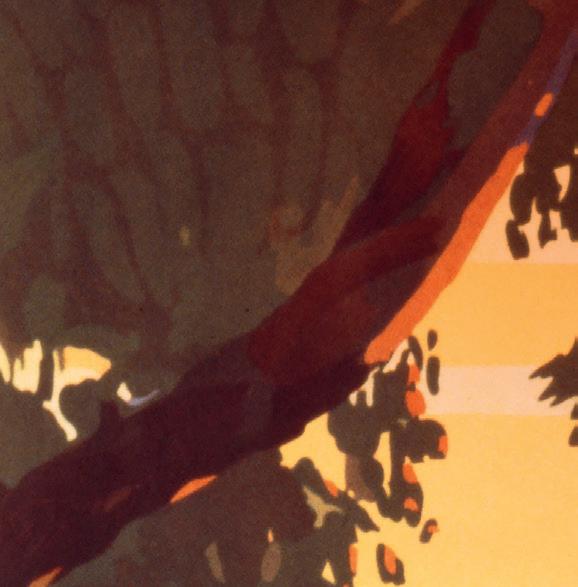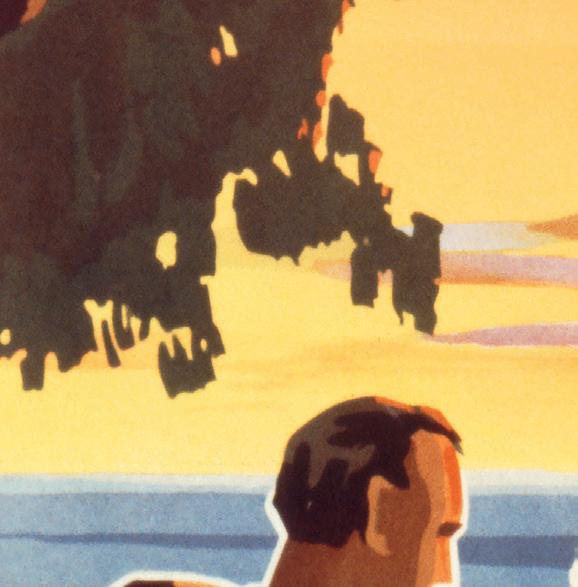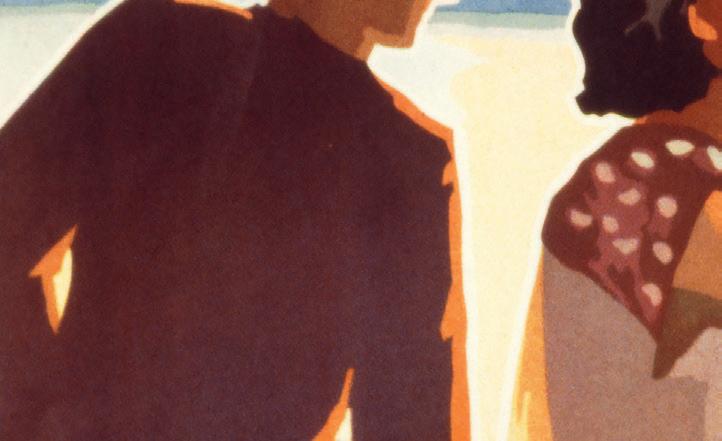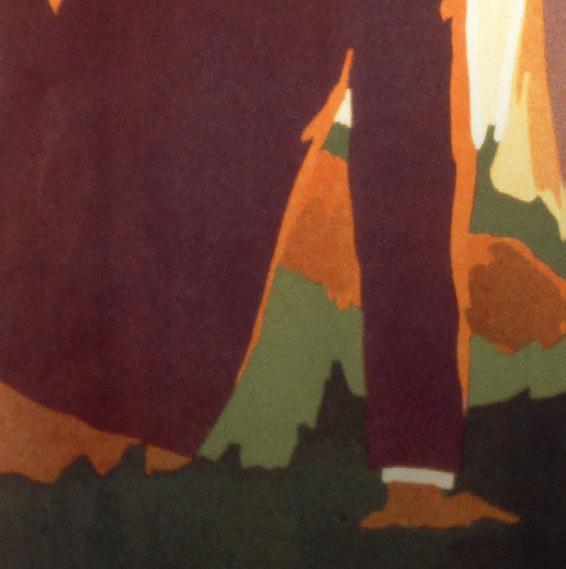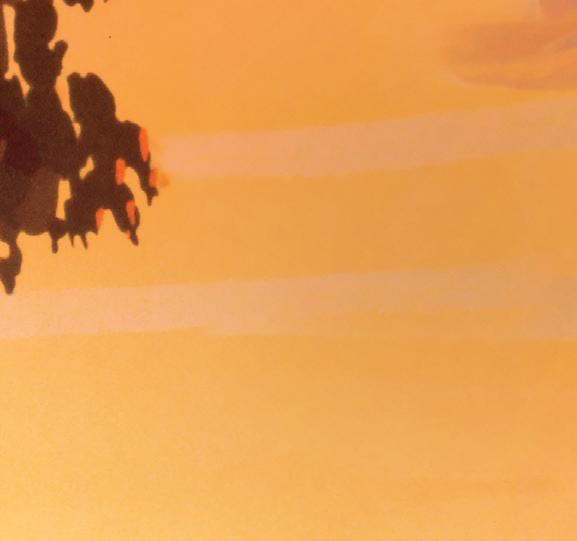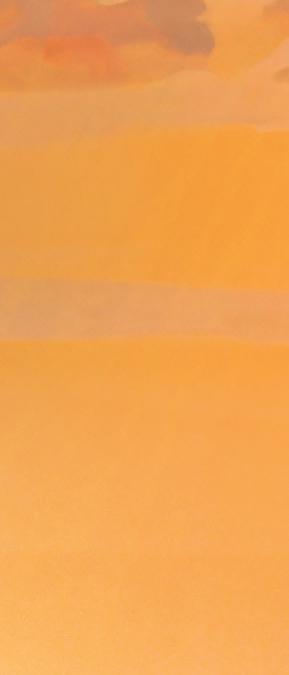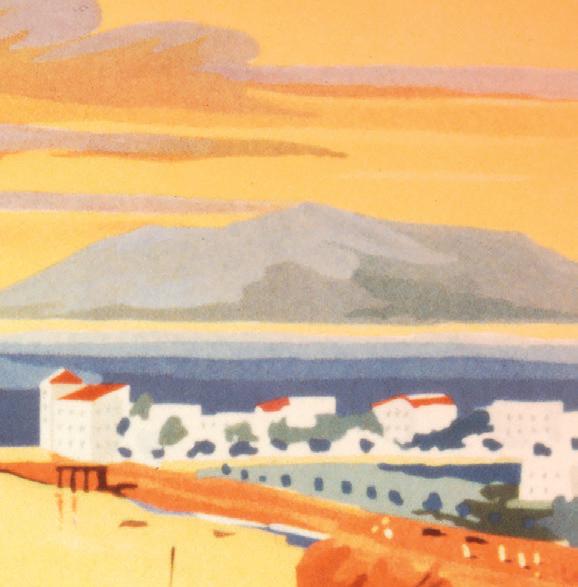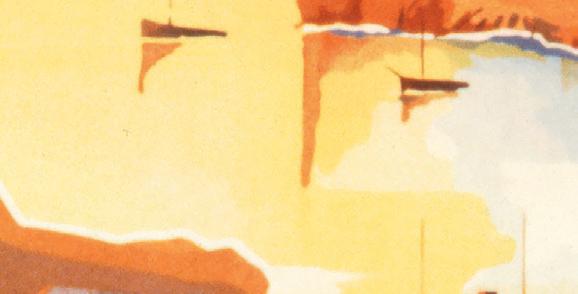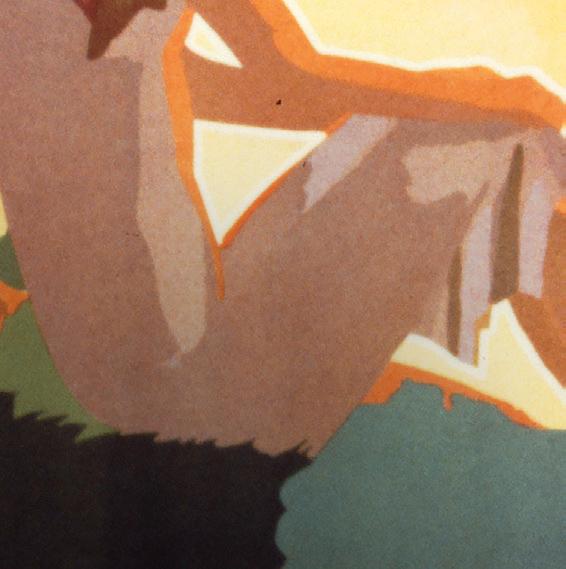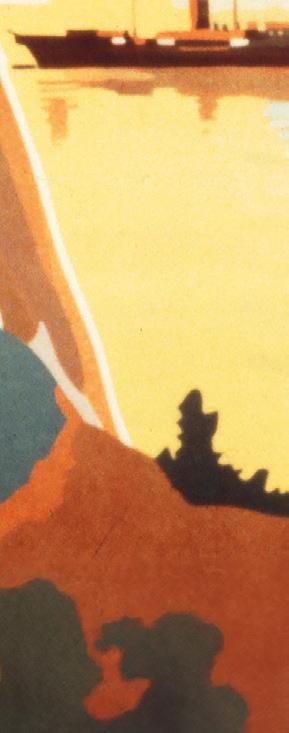Gerald Durrell Birds, Beasts, and Relatives
PENGUIN BOOKS
UK | USA | Canada | Ireland | Australia
India | New Zealand | South Africa
Penguin Books is part of the Penguin Random House group of companies whose addresses can be found at global.penguinrandomhouse.com
Penguin Random House UK , One Embassy Gardens, 8 Viaduct Gardens, London SW11 7BW
penguin.co.uk
First published in the United States of America by The Viking Press, Inc. 1969
Published in Penguin Books 2004
Reissued in 2017
Published in Penguin Modern Classics 2025 001
Copyright © Gerald M. Durrell, 1969
The moral rights of the author has been asserted
Penguin Random House values and supports copyright. Copyright fuels creativity, encourages diverse voices, promotes freedom of expression and supports a vibrant culture. Thank you for purchasing an authorized edition of this book and for respecting intellectual property laws by not reproducing, scanning or distributing any part of it by any means without permission. You are supporting authors and enabling Penguin Random House to continue to publish books for everyone. No part of this book may be used or reproduced in any manner for the purpose of training artificial intelligence technologies or systems. In accordance with Article 4(3) of the DSM Directive 2019/790, Penguin Random House expressly reserves this work from the text and data mining exception.
Set in 11.25/14pt Dante MT Std
Typeset by Jouve (UK ), Milton Keynes
Printed and bound in Great Britain by Clays Ltd, Elcograf S.p.A.
The authorized representative in the EEA is Penguin Random House Ireland, Morrison Chambers, 32 Nassau Street, Dublin D 02 YH 68
A CIP catalogue record for this book is available from the British Library
ISBN : 978–0–241–76295–0
Penguin Random House is committed to a sustainable future for our business, our readers and our planet. This book is made from Forest Stewardship Council® certified paper.
To Theodore Stephanides, in gratitude for laughter and for learning
Conversation
It had been a hard winter, and even when spring was supposed to have taken over, the crocuses – which seemed to have a touching and unshaken faith in the seasons – were having to push their way grimly through a thin crust of snow. The sky was low and grey, liable to discharge another fall of snow at any minute, and a biting wind howled round the house. Taken altogether, weather conditions were not ideal for a family reunion, particularly when it was my family.
It was a pity, I felt, that when they had all forgathered in England for the first time since World War II , they should be treated to something approaching a blizzard. It did not bring out the best in them; it made them more touchy than usual, quicker to take offence, and less likely to lend a sympathetic ear to anyone’s point of view but their own.
They were grouped, like a pride of moody lions, round a fire so large and flamboyant that there was immediate danger of its setting fire to the chimney. My sister Margo had just added to it by the simple method of dragging in the carcass of a small tree from the garden and pushing one end into the fireplace, while the remainder of the trunk lay across the hearth-rug. My mother was knitting, but you could tell by the slightly vacant look on her face and the way her lips moved occasionally, as if she were in silent prayer, that she was really occupied with the menu for tomorrow’s lunch. My brother Leslie was buried
behind a large manual on ballistics, while my elder brother Lawrence, clad in a roll-top pullover of the type usually worn by fishermen (several sizes too large for him), was standing by the window sneezing wetly and regularly into a large scarlet handkerchief.
‘Really, this is a frightful country,’ he said, turning on us belligerently, as though we were all directly responsible for the climatic conditions prevailing. ‘You set foot on shore at Dover and you’re met by a positive barrage of cold germs . . . D’you realize that this is the first cold I’ve had in twelve years? Simply because I had the sense to keep away from Pudding Island. Everyone I’ve met so far has a cold. The entire population of the British Isles seems to do absolutely nothing from one year’s end to another except shuffle round in small circles sneezing voluptuously into each other’s faces . . . a sort of merry-go-round of reinfection. What chance of survival has one got?’
‘Just because you’ve got a cold you carry on as though the world was coming to an end,’ said Margo. ‘I can’t understand why men always make such a fuss.’
Larry gave her a withering look from watering eyes. ‘The trouble with you all is that you like being martyrs. No one free from masochistic tendencies would stay in this – this virus’s paradise. You’ve all stagnated; you like wallowing here in a sea of infection. One excuses people who have never known anything else, but you all had a taste of the sun in Greece; you should know better.’
‘Yes, dear,’ said Mother soothingly, ‘but you’ve just come at a bad time. It can be very nice, you know. In the spring, for example.’
Larry glared at her. ‘I hate to jolt you out of your Rip Van Winkle-like trance,’ he said, ‘but this is supposed to be the spring . . . and look at it! You need a team of huskies to go down to post a letter.’
‘Half an inch of snow,’ snorted Margo. ‘You do exaggerate.’
‘I agree with Larry,’ Leslie said, appearing from behind his book suddenly. ‘It’s bloody cold out. Makes you feel you don’t want to do anything. You can’t even get any decent shooting.’
‘Exactly,’ said Larry triumphantly, ‘while in a sensible country like Greece one would be having breakfast outside and then going down to the sea for a morning bathe. Here my teeth chatter so much it’s only with difficulty that I can eat any breakfast.’
‘I do wish you’d stop harping on Greece,’ said Leslie. ‘It reminds me of that bloody book of Gerry’s. It took me ages to live that down.’
‘Took you ages?’ said Larry caustically. ‘What about me? You’ve no idea what damage that Dickens-like caricature did to my literary image.’
‘But the way he wrote about me, you would think I never thought about anything but guns and boats,’ said Leslie.
‘Well, you never do think about anything but guns and boats.’
‘I was the one that suffered most,’ said Margo. ‘He did nothing but talk about my acne.’
‘I thought it was quite an accurate picture of you all,’ said Mother, ‘but he made me out to be a positive imbecile.’
‘I wouldn’t mind being lampooned in decent prose,’ Larry pointed out, blowing his nose vigorously, ‘but to be lampooned in bad English is unbearable.’
‘The title alone is insulting,’ said Margo. ‘My Family and Other Animals ! I get sick of people saying, “And which other animal are you?” ’
‘I thought the title was rather funny, dear,’ said Mother. ‘The only thing I thought was that he hadn’t used all the best stories.’
‘Yes, I agree,’ said Leslie.
‘What best stories?’ Larry demanded suspiciously.
‘Well, what about the time you sailed Max’s yacht round the island? That was damned funny.’
‘If that story had appeared in print I would have sued him.’
‘I don’t see why, it was very funny,’ said Margo.
‘And what about the time you took up spiritualism – supposing he’d written about that? I suppose you’d enjoy that ?’ inquired Larry caustically.
‘No, I would not – he couldn’t write that,’ said Margo in horror.
‘Well, there you are,’ said Larry in triumph. ‘And what about Leslie’s court case?’
‘I don’t see why you have to bring me into it,’ said Leslie.
‘You were the one who was going on about him not using the best incidents,’ Larry pointed out.
‘Yes, I’d forgotten about those stories,’ said Mother, chuckling. ‘I think they were funnier than the ones you used, Gerry.’
‘I’m glad you think that,’ I said thoughtfully.
‘Why?’ asked Larry, glaring at me.
‘Because I’ve decided to write another book on Corfu and use all those stories,’ I explained innocently.
The uproar was immediate.
‘I forbid it,’ roared Larry, sneezing violently. ‘I absolutely forbid it.’
‘You’re not to write about my spiritualism,’ Margo cried out. ‘Mother, tell him he’s not to write about that.’
‘Nor my court case,’ snarled Leslie. ‘I won’t have it.’
‘And if you so much as mention yachts . . .’ Larry began.
‘Larry dear, do keep your voice down,’ said Mother.
‘Well, forbid him to write a sequel then,’ shouted Larry.
‘Don’t be silly, dear, I can’t stop him,’ said Mother.
‘Do you want it all to happen again?’ demanded Larry hoarsely. ‘The bank writing to ask if you will kindly remove your overdraft, the tradesmen looking at you askance, anonymous parcels full of strait-jackets being left on the doorstep, being
cut dead by all the relatives. You are supposed to be head of the family – stop him writing it.’
‘You do exaggerate, Larry dear,’ said Mother. ‘Anyway, I can’t stop him if he wants to write it. I don’t think it will do any harm and those stories are the best ones, I think. I don’t see why he shouldn’t write a sequel.’
The family rose in a body and told her loudly and vociferously why I should not write a sequel. I waited for the noise to die down.
‘And apart from those stories, there are quite a number of others,’ I said.
‘Which ones, dear?’ inquired Mother.
The family, red-faced, bristling, glowered at me in an expectant silence.
‘Well,’ I said thoughtfully, ‘I want to give a description of your love affair with Captain Creech, Mother.’
‘What?’ squeaked Mother. ‘You’ll do no such thing . . love affair with that disgusting old creature, indeed. I won’t have you writing about that.’
‘Well, I think that’s the best story of the lot,’ said Larry unctuously, ‘the vibrant passion of the romance, the sweet, archaic charm of the leading man . . . the way you led the poor old chap on . . .’
‘Oh, do be quiet, Larry,’ said Mother crossly. ‘You do make me angry when you talk like that. I don’t think it’s a good idea for you to write this book, Gerry.’
‘I second that,’ said Larry. ‘If you publish we’ll sue you in a body.’
Faced with such a firm and united family, bristling in their resolve to prevent me at all costs, there was only one thing I could do. I sat down and wrote this book.
Writing something of this sort presents many pitfalls for the author. His new readers do not want to be constantly
irritated by references to a previous book that they have not read, and the ones who have read the previous book do not want to be irritated by constant repetition of events with which they are familiar. I hope that I have managed to steer a fairly steady course between the two.
The Christening
The island lies off the Albanian and Greek coast-lines like a long, rust-eroded scimitar. The hilt of the scimitar is the mountain region of the island, for the most part barren and stony, with towering rock cliffs haunted by blue rock-thrushes and peregrine falcons. In the valleys in this mountain region, however, where water gushes plentifully from the red- and- gold rocks, you get forests of almond and walnut trees, casting shade as cool as a well, thick battalions of spear-like cypress and silvertrunked fig trees with leaves as large as a salver. The blade of the scimitar is made up of rolling greeny-silver eiderdowns of giant olive trees, some reputedly over five hundred years old and each one unique in its hunched, arthritic shape, its trunk pitted with a hundred holes like pumice-stone. Towards the tip of the blade you have Lefkimi, with its twinkling, eye-aching sand dunes and great salt marshes, decorated with acres of bamboos that creak and rustle and whisper to each other surreptitiously. The island is called Corfu.
That August, when we arrived, the island lay breathless and sun-drugged in a smouldering, peacock-blue sea under a sky that had been faded to a pale powder-blue by the fierce rays of the sun. Our reasons for packing up and leaving the gloomy shores of England were somewhat nebulous, but based loosely on the fact that we were tired of the drab suburbanness of life in England and its accompanying bleak and unpleasant climate.
So we had fled to Corfu, hoping that the sunshine of Greece would cure us of the mental and physical inertia which so long a sojourn in England had brought about. Very soon after we had landed, we had acquired our first villa and our first friend on the island.
The friend was Spiro, a waddling, barrel-shaped man with huge powerful hands and a brown, leathery, scowling face. He had perfected an odd but adequate command over English and he possessed an ancient Dodge which he used as a taxi. We soon found that Spiro, like most of the Corfu characters, was unique. There seemed to be no one that he did not know and nothing that he could not obtain or get done for you. Even the most bizarre requests from the family would be met by him with the remark, ‘Don’ts yous worries about thats. I’ll fixes thats.’ And fix it he would. His first major piece of fixing was the acquisition of our villa, for Mother had been insistent that we must have a bathroom, and this very necessary adjunct of wholesome living was in short supply in Corfu. But, needless to say, Spiro knew of a villa with a bath, and very soon, after much shouting and roaring, gesticulation, sweating, and waddling to and fro carrying armfuls of our goods and chattels, Spiro had us safely installed. From that moment he ceased to be merely a taxi driver that we hired and became our guide, philosopher, and friend.
The villa that Spiro had found was shaped not unlike a brick and was a bright crushed-strawberry pink with green shutters. It crouched in a cathedral-like grove of olives that sloped down the hillside to the sea, and it was surrounded by a pocket-handkerchief-size garden, the flower-beds laid out with a geometrical accuracy so dear to the Victorians, and the whole thing guarded by a tall, thick hedge of fuchsias that rustled mysteriously with birds. Coming, as we had done, from a number of years’ torture in the cold grey of England, the sunshine and
The Christening the brilliant colours and scents it evoked acted on us all like a heady draught of wine.
It affected each member of the family in a different way. Larry wandered about in a sort of daze, periodically quoting long stanzas of poetry to Mother, who either did not listen or else said, ‘Very nice, dear,’ absently. She, entranced by the variety of fruit and vegetables available, spent most of her time closeted in the kitchen preparing complicated and delicious menus for every meal. Margo, convinced that the sunshine would do for her acne what all the pills and potions of the medical profession had so far failed to do, sun-bathed with strenuous earnestness in the olive groves and in consequence got herself badly burnt. Leslie discovered, to his delight, that one could purchase lethal weapons without a permit in Greece and so he kept disappearing into town and reappearing carrying a variety of fowling pieces ranging from ancient Turkish muzzle-loaders to revolvers and shot guns. As he insisted on practising with each new acquisition, our nerves became somewhat frayed, and as Larry remarked somewhat bitterly, it was rather like living in a villa surrounded by revolutionary forces.
The garden, for long untended, was an overgrown riot of uninhibited flowers and weeds in which whirled, squeaked, rustled, and jumped a multi-coloured merry-go-round of insect life, and so it was the garden that held my immediate attention. However luxurious our various gardens had been in England, they had never provided me with such an assortment of living creatures. I found myself prey to the most curious sensation of unreality. It was rather like being born for the first time. In that brilliant, brittle light I could appreciate the true huntsman’s-red of a lady-bird’s wing case, the magnificent chocolate and amber of an earwig, and the deep shining agate of the ants. Then I could feast my eyes on a bewildering number of creatures unfamiliar to me: the great, furry carpenter-bees,
which prowled like electric-blue teddy bears, humming to themselves, from flower to flower; the sulphur-yellow, blackstriped swallow-tailed butterflies, with their elegant cut-away coats, that pirouetted up and down the fuchsia hedge doing complicated minuets with each other; and the humming-bird hawk-moths that hung, stationary, suspended by a blur of wings, in front of the flowers, while they probed each bloom with their long, delicate proboscises.
I was exceedingly ignorant as to even the simplest facts about these creatures and I had no books to guide me. All I could do was to watch them as they went about their business in the garden or capture them so that I could study them more carefully at first hand. Very soon my bedroom was filled with a battalion of jam jars and biscuit tins containing the prizes that I had found in our tiny garden. These had to be smuggled surreptitiously into the house, for the family, with the possible exception of Mother, viewed the introduction of this fauna into the villa with considerable alarm.
Each brilliant day brought some new puzzles of behaviour to underline my ignorance. One of the creatures that intrigued and irritated me most was the dung-beetle. I would lie on my stomach with Roger, my dog, squatting like a mountain of black curls, panting, by my side, watching two shiny black dungbeetles, each with a delicately curved rhino horn on its head, rolling between them (with immense dedication) a beautifully shaped ball of cow dung. To begin with I wanted to know how they managed to make the ball so completely and beautifully round. I knew from my own experiments with clay and Plasticine that it was extremely difficult to get a completely round ball, however hard you rubbed and manipulated the material, yet the dung-beetles, with only their spiky legs as instruments, devoid of calipers or any other aid, managed to produce these lovely balls of dung, as round as the moon. Then there was the
The Christening second problem. Why had they made it and where were they taking it?
I solved this problem, or part of it, by devoting one entire morning to a pair of dung-beetles, refusing to be deviated from my task by the other insects in the garden or by the faint moans and yawns of boredom that came from Roger. Slowly, on all fours, I followed them foot by laborious foot across the garden, which was so small to me and yet such a vast world to the beetles. Eventually they came to a small hummock of soft earth under the fuchsia hedge. Rolling the ball of dung uphill was a mammoth task, and several times the beetles’ foot-work was at fault and the ball would break away and roll back to the bottom of the little incline, the beetles hurrying after it and, I liked to imagine, shouting abuse at each other. Eventually, however, they got it to the top of the rise and started down the opposite slope. At the bottom of the slope, I noticed for the first time, was a round hole like a well, which had been sunk into the earth, and it was for this that the beetles were heading. When they were within a couple of inches of the hole, one of the beetles hurried ahead and backed into the hole where he sat, gesticulating wildly with his front legs, while the other beetle, with a considerable effort (I could almost convince myself that I heard him panting), rolled the ball of dung up to the mouth of the burrow. After a considerable length of time spent in pushing and pulling, the ball slowly disappeared into the depths of the earth and the beetles with it. This annoyed me. After all, they were obviously going to do something with the ball of dung, but if they did it under ground, how could I be expected to see what they did? Hoping for some enlightenment on this problem, I put it to the family at lunch-time. What, I inquired, did dung-beetles do with dung? There was a moment’s startled silence.
‘Well, I expect they find it useful, dear,’ said Mother vaguely.
‘I trust you’re not hoping to smuggle some into the house?’ Larry inquired. ‘I refuse to live in a villa whose decor consists of balls of dung all over the floor.’
‘No, no, dear, I’m sure he won’t,’ said Mother peaceably and untruthfully.
‘Well, I’m just warning you, that’s all,’ said Larry. ‘As it is, he appears to have all the more dangerous insects out of the garden closeted in his bedroom.’
‘They probably want it for warmth,’ said Leslie, who had been giving the matter of dung-beetles some thought. ‘Very warm stuff, dung. Ferments.’
‘Should we, at any time, require central heating,’ said Larry, ‘I’ll bear that in mind.’
‘They probably eat it,’ said Margo.
‘Margo, dear,’ said Mother. ‘Not while we’re having lunch.’
As usual, my family’s lack of biological knowledge had let me down.
‘What you want to read,’ said Larry, absentmindedly helping himself to another plateful of stew, which he had just described to Mother as being lacking in flavour, ‘what you want to read is some Fabre.’
I inquired what or who Fabre was, more out of politeness than anything else, because, as the suggestion had come from Larry, I was convinced that Fabre would turn out to be some obscure medieval poet.
‘Naturalist,’ said Larry, his mouth full, waving his fork at me. ‘Wrote about insects and things. I’ll try and get you a copy.’
Overwhelmed with such unlooked-for magnanimity on the part of my elder brother, I made a point of being very careful within the next two or three days not to do anything to incur his wrath; but the days passed and no book appeared and eventually I forgot about it and devoted my time to the other insects in the garden.
But the word ‘why’ pursued and frustrated me on every hand. Why did the carpenter- bees cut out little circular pieces from the rose leaves and fly away with them? Why did the ants conduct what appeared to be passionate love affairs with the massed battalions of green fly that infested many of the plants in the garden? What were the strange, amber, transparent insect corpses or shells that I found sticking to grass stalks and to olive trees? They were the empty skins, as fragile as ash, of some creature with a bulbous body, bulbous eyes, and a pair of thick, well- barbed forelegs. Why did each of these shells have a split down its back? Had they been attacked and had all their life juices sucked out of them? If so, what had attacked them and what were they? I was a bubbling cauldron of questions which the family were unable to answer.
I was in the kitchen when Spiro arrived one morning some days later, as I was showing Mother my latest acquisition, a long, thin, caramel-coloured centipede which I was insisting, in spite of her disbelief, glowed with a white light at night. Spiro waddled into the kitchen, sweating profusely, looking, as he always did, truculent and worried.
‘I’ve broughts yours mails, Mrs Durrells,’ he said to Mother, and then, glancing at me, ‘Mornings, Masters Gerrys.’
Thinking, in my innocence, that Spiro would share my enthusiasm for my latest pet, I pushed the jam jar under his nose and urged him to feast his eyes upon it. He took one swift look at the centipede, now going round and round in the bottom of the jar like a clock-work train, dropped the mail on the floor, and retreated hurriedly behind the kitchen table.
‘Gollys, Masters Gerrys,’ he said, ‘what’s you doing with thats?’
I explained it was only a centipede, puzzled at his reaction.
‘Thems bastards are poisonous, Mrs Durrells,’ said Spiro
earnestly, to Mother. ‘Honest to Gods Masters Gerrys shouldn’t have things like thats.’
‘Well, perhaps not,’ said Mother vaguely. ‘But he’s so interested in all these things. Take it outside, dear, where Spiro can’t see it.’
‘Makes me scarce,’ I heard Spiro say as I left the kitchen with my precious jar. ‘Honest to Gods, Mrs Durrells, makes me scarce what that boy finds.’
I managed to get the centipede into my bedroom without meeting any other members of the family and I bedded him down in a small dish, tastefully decorated with moss and bits of bark. I was determined that the family should appreciate the fact that I had found a centipede that glowed in the dark. I had planned that night to put on a special pyrotechnic display after dinner. However, all thoughts of the centipede and his phosphorescence were completely driven from my mind, for in with the mail was a fat, brown parcel which Larry, having glanced at, tossed across to me while we were eating lunch.
‘Fabre,’ he said succinctly.
Forgetting my food, I tore the parcel open, and there inside was a squat, green book entitled The Sacred Beetle and Others by Jean Henri Fabre. Opening it, I was transported by delight, for the frontispiece was a picture of two dung-beetles, and they looked so familiar they might well have been close cousins of my own dung-beetles. They were rolling a beautiful ball of dung between them. Enraptured, savouring every moment, I turned the pages slowly. The text was charming. No erudite or confusing tome, this. It was written in such a simple and straightforward way that even I could understand it.
‘Leave the book till later, dear. Eat your lunch before it gets cold,’ said Mother.
Reluctantly I put the book on my lap and then attacked my food with such speed and ferocity that I had acute indigestion
The Christening for the rest of the afternoon. This in no way detracted from the charm of delving into Fabre for the first time. While the family siestaed, I lay in the garden in the shade of the tangerine trees and devoured the book, page by page, until by tea-time – to my disappointment – I had reached the end. But nothing could describe my elation. I was now armed with knowledge. I knew, I felt, everything there was to know about dung-beetles. Now they were not merely mysterious insects crawling ponderously throughout the olive groves – they were my intimate friends.
About this time another thing that extended and encouraged my interest in natural history – though I cannot say that I appreciated it at the time – was the acquisition of my first tutor, George. George was a friend of Larry’s, tall, lanky, brown-bearded and bespectacled, possessed of a quiet and sardonic sense of humour. It is probable that no tutor has ever had to battle with such a reluctant pupil. I could see absolutely no reason for having to learn anything that was not connected with natural history, and so our early lessons were fraught with difficulty. Then George discovered that, by correlating such subjects as history, geography, and mathematics with zoology, he could get some results, and so we made fair progress. However, the best thing as far as I was concerned was that one morning a week was devoted exclusively to natural history, when George and I would peer earnestly at my newly acquired specimens and endeavour to identify them and work out their life histories. A meticulous diary was kept which contained a large number of flamboyant and somewhat shaky pictures, purporting to be of the specimens in question, done by me in a variety of coloured inks and water-colours.
Looking back, I have a sneaking feeling that George enjoyed the mornings devoted to natural history as much as I did. It was, for example, the only morning during the week that I would go to meet him. I would amble through the olive groves half-way
Birds, Beasts, and Relatives
to the tiny villa that he occupied, and then Roger and I would conceal ourselves in a clump of myrtle and await his approach. Presently he would appear, clad in nothing but a pair of sandals, faded shorts, and a gigantic, tattered straw hat, carrying under one arm a pile of books and swinging a long, slender walkingstick in the other hand. The reason for going to meet George, I regret to say, was of an entirely mercenary nature. Roger and I would squat in the sweet-scented myrtles and lay bets with each other as to whether or not, on this particular morning, George was going to fight an olive tree.
George was an expert fencer and had a quantity of cups and medals to prove it, so the desire to fight something frequently overcame him. He would be striding along the path, his spectacles glittering, swinging his walking-stick, when suddenly one olive tree would become an evil and malignant thing that had to be taught a lesson. Dropping his books and hat by the side of the path, he would advance cautiously towards the tree in question, his walking-stick, now transformed into a sword, held in his right hand at the ready, his left arm held out elegantly behind him. Slowly, stiff-legged, like a terrier approaching a bull mastiff, he would circle the tree, watching with narrowed eyes for its first unfriendly move. Suddenly he would lunge forward and the point of his stick would disappear in one of the holes in the olive tree’s trunk and he would utter a pleased ‘Ha,’ and immediately dodge back out of range, before the tree could retaliate. I noticed that if he succeeded in driving his sword into one of the smaller of the olive tree’s holes, this did not constitute a death wound, merely a slight scratch, which apparently had the effect of rousing his antagonist to a fury, for in a second he would be fighting grimly for his life, dancing nimble-footed round the olive tree, lunging and parrying, leaping away with a downward slash of his sword, turning aside the vicious lunge that the olive tree had aimed at him,
